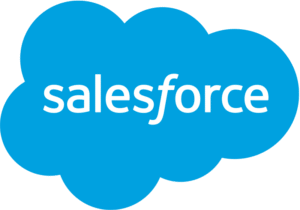| HubSpot |
Salesforce surpasses HubSpot with its robust customization, advanced AI-driven analytics, and scalability for large enterprises. Its extensive ecosystem, including AppExchange, offers thousands of integrations, enhancing functionality for complex workflows.
Customer reviews praise Salesforce’s comprehensive reporting and forecasting tools, ideal for businesses needing in-depth insights, unlike HubSpot’s simpler, marketing-focused platform tailored for smaller teams. |
| Microsoft Dynamics 365 |
Salesforce excels over Microsoft Dynamics 365 with superior customization and a vast third-party app ecosystem, enabling tailored workflows without heavy configuration.
Its intuitive reporting and broader integration options make it more versatile for diverse industries. Reviews highlight Salesforce’s ease of use and scalability, offering a more adaptable solution compared to Dynamics’ Microsoft-centric integration focus. |
| Zoho CRM |
Salesforce outperforms Zoho CRM with its advanced data model and AI capabilities, supporting complex enterprise needs. Its scalability and industry-specific solutions make it ideal for large organizations, while Zoho’s simpler design suits smaller businesses.
Customer feedback emphasizes Salesforce’s robust analytics and customization, providing deeper insights and flexibility compared to Zoho’s limited high-end functionality. |
| Oracle CRM |
Salesforce offers greater out-of-the-box functionality and a larger integration ecosystem via AppExchange, making it more accessible for businesses of all sizes. Its user-friendly interface and features like email signatures and call reminders enhance productivity.
Reviews note Salesforce’s versatility and ease of use, contrasting with Oracle’s complex setup and ERP-focused integration, which may require technical expertise. |
| Pipedrive |
Salesforce provides a broader feature set beyond Pipedrive’s sales pipeline focus, including advanced automation, marketing, and service integration. Its customization depth and analytics capabilities support growing enterprises effectively.
Customer reviews favor Salesforce for its comprehensive CRM tools and scalability, offering more robust solutions for deal management and productivity compared to Pipedrive’s streamlined, sales-only approach. |

